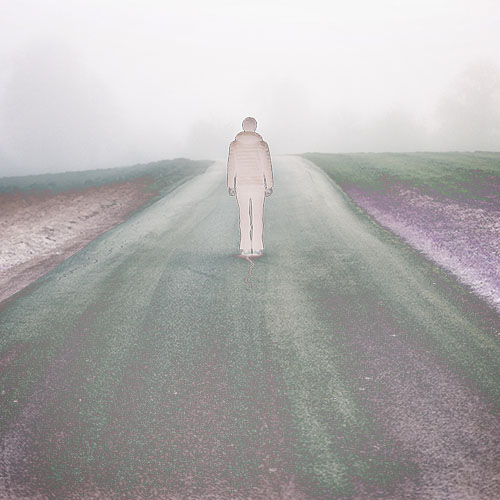What do women want? Most seek total equality without sacrificing love and empathy. They also want hot sex, hard cocks, and — oh yes — romance.
Being Sexual: Is Sex Sexy Without Power?
I am imagining two politically correct lovers, equal in every way.
“May I suck your nipple?” he asks.
“May I stroke your cock?” she counters.
“Yes,” he says.
“Yes,” she says.
“Sign here,” says the lawyer, imposing herself between the two of them in bed. Two of them in bed. “To avoid future trouble, please sign these contracts.”
Would a lawyer in bed, drafting papers on cue, avoid all trouble between differently empowered lovers?
Of course not — however amusing it might be to imagine such a scene.
SOCIAL EQUALITY IS MORE IMPORTANT THAN SEXUAL PLEASURE, read the placards welcoming the San Francisco feminist writer Susie Bright when she came to lecture at Antioch University. This is the school that promulgated the “Antioch Rules” for sexual behavior, which basically encourage students to obtain verbal consent at every escalation of sexual intimacy. The press has had an orgy of ridicule regarding these rules. But basically, they would tend to favor the more verbal and literary of lovers — ink-stained wretches like ourselves — rather than the muscle-bound brutes. Nevertheless, even if the rules were observed by everyone, would they completely banish power from the sexual sphere? I doubt it. And more to the point, would sex be sexy without power?
There is a Lothario from my past whom I long for from time to time. Dialing his phone number, my breath comes short and my heart pounds. By the time he answers the phone (or his machine does), adrenaline is coursing through my veins. The fact that I am happily married changes nothing. This man dangled me powerlessly for a number of years, and even the anticipation of talking to him on the phone makes my hands grow cold and my heart do a Bavarian schuhe-platte sort of dance.
Every madly sexual affair I have had has been characterized by an imbalance of power. Either the man was married and I was single, which creates a built-in power imbalance, or the man was emotionally or physically elusive. You don’t need whips and chains as instruments of torture. The telephone is instrument enough.
Why has sex become so problematic in the last few years — problematic enough to create an epidemic of teenage virgins, a resurgence of right-(and left-) wing censorship, and enough heat on an eminently sensible surgeon general, Joycelyn Elders, to get her fired for advocating the use of condoms and for refusing to pretend that masturbation grows hair on the palms of our hands? It is 25 years after the so-called Sexual Revolution, and sex is in retreat all over America. Why? AIDS is only part of the equation. In many ways, the AIDS epidemic only gives a tangible justification to the fear of sex that is rampant in our culture.
Of course people are afraid of sex. Its power is seismic. One feels the possibility of being swept away. In one very vocal branch of the American feminist movement, this has translated into a desire for rules, laws, guarantees — as if we didn’t have enough laws in our lives already. Some women seem to be asking for guarantees not to be hurt by passion — which is a little like asking not to be hurt by life.
“Waiting is an enchantment: I have received orders not to move. Waiting for a telephone call is thereby woven out of tiny unavowable interdictions to infinity: I forbid myself to leave the room, to go to the toilet, even to telephone (to keep the line from being busy); I suffer torments if someone else telephones me (for the same reason); I madden myself by the thought that at a certain (imminent) hour I shall have to leave, thereby running the risk of missing the healing call….”
So Roland Barthes describes a lover’s waiting in A Lover’s Discourse.
Let’s think about the slogan that greeted Susie Bright at Antioch: “Social equality is more important than sexual pleasure.” It implies an either/or. It suggests that you can have sexual pleasure without social equality, or social equality without sexual pleasure. It suggests, in fact, that sexual pleasure is the enemy of social equality.
“Can a feminist go to dinner with her panties off and still be a good feminist? Of course not… [That] implies that women like and invite sex.”
This is a little like saying that dancing is the enemy of revolution — something feminist Emma Goldman famously refuted. “If I can’t dance, it’s not my revolution,” she said. Similarly, Susie Bright declares, “I refuse to choose between sexual pleasure and social equality.” Is it because the wondrous Ms. Bright lives and writes in San Francisco, the last stand of the American counterculture, that she retains a certain bravado which Andrea Dworkin and Catharine MacKinnon have beaten out of the rest of us? How sensible to refuse to choose between pleasure and equality! “It’s like choosing between breathing and eating,” Susie Bright says.
The point is, we need both. Why has it become so dangerous for feminists to say so?
Most of the classics of erotica recognize power and surrender as vital components of sexuality. Story of O, a perennial favorite for fantasizers of both sexes, shows the gradual disempowerment of the object of desire, ending in her complete surrender, even unto death. I dare the most politically correct ideologue of any persuasion not to be turned on by it. It doesn’t matter whether you disapprove of its politics. The notion of surrender is profoundly erotic, in part because all guilt is erased by it. As long as guilt about sex remains in our puritanical culture, surrender to a power greater than oneself will continue to be an important ingredient of erotic fantasy. The rumor has been given out that only men — the brutish sex — like power and dominance in erotic play. Feminists who say that (Andrea Dworkin and Catharine MacKinnon and their myriad lemming — like followers) ought to look at Coming to Power: Writings and Graphics on Lesbian S-M (first published in 1981), a veritable compendium of consensual spanking and bondage between women. Always the participants are lesbians. Always the play is fully agreed upon between the players. The desire to explore the limits of power and submission is not a male compulsion but a human one. Lesbian feminists are as curious about it as anyone. It is a way of exploring the limits of the human. It is a way of intensifying desire to see how strong desire can become. Add the ingredient of power, and sex becomes fortified — like wine to which liquor has been added. Imbalance of power is our earliest experience of life. We return our sexual selves to the primitive sphere when we introduce the element of power. Most people find this irresistible — at some stage or other of their lives.
Exploring power relationships in fantasy is not the same as exploring them in reality. Fantasy is to daily life as dream is to wakefulness. Perhaps the wildness we release in fantasy makes the discipline of our lives possible. But in every historical period, there has been some group of would-be religious or social reformers who refuse to make any distinction between fantasy and reality. Such fundamentalists have traditionally sought to censor fantasy in the name of religious purity or social meliorism. It is depressing to see a libertarian movement like feminism aping the worst excesses of fundamentalism. But that is indeed what we have been seeing. Just as Emma Goldman protested that if she couldn’t dance, it wasn’t her revolution, as Susie Bright refused to choose between equality and pleasure, I refuse to allow feminism — my movement — to turn into fascism. Feminism began as a movement to liberate women legally, economically, and sexually. I will not allow it to be transformed into its opposite in the name of a petit-bourgeois puritanism that mocks the strongest drives of the majority of women and men.
Censoring fantasy may well be as futile as trying to censor dreams. It may, in fact, produce an effect opposite to what the zealots intend. But being zealots. they never care very much about truth. They are idealists and theirs is only to theorize. The implementation of their theories is left to others — the secret police, usually.
The feminist movement in America seems to have invented its own secret police. Anti-pornography feminists are interested in censoring fantasies in an attempt to control reality. (Of course, the anti-porn feminists hardly represent the majority of feminists — or even of women — but that doesn’t diminish their self-righteousness.) It is useless to ask whether it mightn’t be more effective feminism to enforce the laws against battery and rape, to give women legal and financial equality, as well as true social equality. The anti-porn feminists will simply dismiss you as hopelessly brainwashed by the patriarchy and refuse to debate you in public. The anti-porn feminists are more obsessed with criminalizing sexual fantasies than with punishing actual crimes. In their looking-glass world, fantasies are the crime from which all other crimes proceed.
Apparently, power is an irresistible aphrodisiac — even to idealists. The behavior of the anti-porn feminists is just as power-mongering and fascistic as that of the patriarchal men they seek to replace. Equity is no longer enough for the anti-porn feminists. They want nothing less than an authoritarian matriarchy, and they are largely responsible for the tragic discrediting of the very term feminism that has occurred for a majority of young women. Most young women actually support feminist ideals of equity, but they do not want to be associated with the authoritarianism, demagoguery, and male-bashing of the anti-porn feminists. Who can blame them?
What do women want? Freud didn’t know, but I do. The majority of women seek a truce between the sexes total equality for women without sacrificing love, affection, empathy. They also want hot sex, hard cocks. surrender to sensuality, and — oh yes — romance. You may be able to make them ashamed of these wishes, but you cannot eradicate the wishes themselves. And why try? Why try to build a political movement by making the majority of women ashamed of their deepest desires? As a political strategy, it is utterly self-defeating. Most women do not see themselves as hapless victims who are overpowered by evil brutes. They are searching to be comfortable with their sexuality, to find partners with whom they share pleasure, love, and work. How can you build a political movement by mocking their deepest desires? You can’t. That’s why the anti-porn feminists have damaged our movement.
And these feminists are powerful. They can have your books expelled from the university curriculum — or burned. If that doesn’t suffice, you may be brought up on charges of sexual harassment. dismissed as “trivial,” “patriarchal,” hopelessly “male-identified.” Try to say that sadomasochism does not divide by gender. that both women and men may, at times, seek sexual surrender, and you will be swiftly silenced.
When I was researching my sixth novel, Any Woman’s Blues (1990), I was introduced (by a former lover of mine) to a dominatrix who plied her craft in a mirrored flat above midtown Manhattan. She checked me out over lunch, decided I was harmless enough, and invited me to her lair to watch the goings-on. There I saw powerful men submit to the ministrations of leather-clad mistresses. The humiliations for which they paid were various: the privilege of washing up the party dishes clad in a dress; the privilege of lying prone on a massage table, being teased and whipped with a cat-o’-nine-tails; the privilege of kissing the toe of the mistress’s pointy shoe.
“Anti-pornography feminists … distracted our movement from the important work it should have been doing on behalf of women’s equality.”
I saw one man come explosively while being teased — for which he was teased some more. I saw another come from sniffing a pair of panties dangled before his nose by a leather-clad disciplinarian. There was insufficient friction for orgasm in both cases; the friction was in the mind. It proved more than enough.
If the exercise of the power to victimize is an exclusively male phenomenon, why do these powerful men pay handsomely for the privilege of being masochists for a night? Obviously, there is something in the human psyche not accounted for by the theories of our self-appointed social meliorists. In a world of total equality, perhaps the infliction of pain would not be sexy. But we are far from such a world — men and women both. So let’s distinguish between wishful thinking and reality. Our politically correct wishful thinkers are failing to take account of the force within the human breast that responds to dominance or submission with a flood of juice.
Can a feminist go out to dinner with her panties off and still be a good feminist? The question is rhetorical. Of course not. The minute she takes them off, she becomes a counterrevolutionary. Going without panties implies that women like and invite sex, and that is a thesis no politically correct feminist will happily tackle in public — however much she may practice it in private.
The eponymous heroine of Story of O not only goes without panties, she wears labial rings — which clank. They remind her of her constant availability. Even away from her lover, she is ready for him. What is most erotic is to live in that constant state of longing so that your whole life becomes a tribute to, or a preparation for, passion. Never mind that the act of passion is speedily over. The longing for, anticipation, and preparation for can be infinitely prolonged. This is what makes lovers feel alive.
Why is power a necessary concomitant of sexual excitement, and, indeed , of love? Because powerlessness is our universal experience as infants. It is our fate to love larger, more powerful creatures when we are small and weak. And it is our fate to be powerless over our mother’s breasts, arms, voice, and speed of return.
What is the lover waiting for? The return of mother.
“The being I am waiting for is not real. Like the mother’s breast for the infant, ‘I create and re-create it over and over, starting from my capacity to love, starting from my need for it.’ … And if the other does not come, I hallucinate the other: Waiting is a delirium…. The lover’s fatal identity is precisely: I am the one who waits.” — Roland Barthes, A Lover’s Discourse
“The constant prerogative of all power is to make the other wait,” Barthes also says. The sadomasochism of the love affair is predetermined by the infant’s need for the mother who makes him/her wait. Until humans are hatched in the Central London Hatchery imagined by Aldous Huxley, we will replay our eroticism through synapses formed in infancy — and waiting will inevitably be erotic to us.
Straight, gay, bi, man, woman, androgyne, black, brown, white — waiting is the lover’s fate. Ceasing to wait is, conversely, a declaration of independence — as in this story told in A Lovers Discourse: “A mandarin fell in love with a courtesan. ‘I shall be yours,’ she told him, ‘when you have spent a hundred nights waiting for me, sitting on a stool, in my garden, beneath my window.’ But on the ninety-ninth night, the mandarin stood up, put his stool under his arm, and went away.”
Some lovers deal with the anxiety of waiting by refusing to wait. Some deal with it by succumbing swooningly to the delirium of waiting. Some refuse to fall in love at all. But at the root of all these adaptations (or maladaptations) is the same basic human power struggle between the one who waits and the one who is awaited.
The Antioch Rules cannot legislate this dynamic out of existence. Andrea Dworkin and Catharine MacKinnon cannot defeat it with ordinances. One lover will always have more power than another — if only because she or he loves the other less. And passion will therefore be heightened by power.
Of course, the sexism of our society has made for cunning variations on a woman’s waitfulness. If the man has more money than the woman, more brute strength, a faster car, more freedom to have pleasure, the power to kidnap her children or impoverish her, the woman will experience her waiting as a repetition of her social powerlessness. She may, therefore, become an adept at coquetry so as to try to right the wrongs the power balance predetermines. Women are most coquettish where most oppressed, most honest where most free. But it is not sexism alone that creates the power imbalance. Nature has a part in it, too. As long as children are small and weak and mothers big and strong, love will partake of the dynamic of power.
So it is useless to promulgate laws to protect us from the natural one-upmanship (or -womanship) of love. We may some day be protected from rape and battery. We cannot be protected from the rape and battery of our own minds.
Does Catharine MacKinnon wait by the telephone for her lover to call? She is not straight enough to level with us. She will never share her personal feelings. She prefers to cloak her ideas in juridical abstractions, write laws for the rest of us to be bound by, and declare her legal credo in bold abstractions published approvingly by Harvard University Press or The New York Times. But does her heart thud when Jeffrey Masson calls ( or does not call)? And shouldn’t we know this as we debate her proposed legislation? She is, after all, asking us to confiscate any materials that “degrade women” and punish the authors and distributors of it as if their representations were acts. If the personal and the political are truly one, mustn’t we know how love and sex afflict her human heart? Or has she excised it — as she would excise all erections?
Perhaps a little historical background will be of use here. The thesis that pornography is a crime against women has so infected our discussion of sexuality, of creativity, and, indeed, of feminism that we may forget that sexual freedom for women was long a hallmark of feminism. From Mary Wollstonecraft to Emma Goldman, from Victoria Woodhull to Simone de Beauvoir, feminists demanded that women no longer be sold as chattel in marriage and that their sexual desires and passions be theirs alone to bestow.
In the early years of this century, First Wave feminism was blessed with women like Margaret Sanger, Emma Goldman, Rebecca West, and Edna St. Vincent Millay, for whom sexual freedom for women was the litmus test of true liberation and also its means of celebration. In the late sixties and early seventies, Second Wave feminism followed this sex-positive tradition. The works of Germaine Greer, Angela Carter, Fay Weldon, Edna O’Brien, Anne Sexton, Margaret Atwood — and, indeed, my own books — celebrated sexual fantasy and linked it with the freedom to embrace one’s own creativity. Finally, women were embracing their right to become poets themselves rather than merely muses to male poets.
But this erotic and creative fervor was short-lived. (Eros is always short-lived in puritanical cultures.) The women writers who embraced Eros were swiftly damned as pornographers or mad-women. That they were attacked for their very freedom and frankness by bourgeois puritanical critics should not surprise us. What is surprising, however, is that some feminists also joined in this attack. Perhaps they feared passion and creativity more than they knew.
In the eighties, concurrent with a backlash against woman’s reproductive freedom, came a backlash against sexuality and a narrowing of focus within the feminist movement itself. A group of writer- reformers including Robin Morgan, Andrea Dworkin, and Catharine MacKinnon began a movement to “take back the night” for women. Correctly stating that women are far from safe in our society, these theorists made an erroneous causal leap and blamed pornography itself for the assault and battery of women that pervades our culture. Men were decreed the violent sex, and women were — by implication — wholly pure. All forms of heterosexuality became suspect. Still more troubling, it came to be assumed that exploring the diversity of pleasure was in itself selfish and anti-social — a dangerous diversion, in short, from the important work of social revolution.
This anti-sexual drift should not surprise us. Ours is a fiercely puritanical culture, and in such a culture, sex-negativity (whether espoused by Andrea Dworkin or Catharine MacKinnon or fundamentalists of any persuasion) always sells better than a positive attitude toward sex. The feminist movement was drifting toward sexual conservatism at the same time that the culture as a whole was. As abortions were outlawed for poor women, as feminists were less and less tolerated for speaking about the diversity of sexual pleasure, both America and England headed for the most economically cruel political administrations either country had known since World War II.
The decade we now call “the eighties” actually started in the late seventies, with the renewed demonization of sexuality. By the early eighties, I knew we were in trouble when The New York Times op-ed page published a Barbara Cartland editorial calling for a new appreciation of virginity. Soon after that, Diana Spencer’s premarital virginity was to be the subject of heated journalistic speculation. And then came the royal wedding — that apotheosis of the New Virginity — with the tragi-comic aftermath we are still witnessing. But most astonishingly, the feminist take-back-the-nighters and the Reagan administration linked arms to endorse censorship and a suspension of the Bill of Rights, supposedly in the name of ending the degradation of women.
The very administration that had impoverished women and children and banned abortions for poor women co-opted the feminist language of Andrea Dworkin and Catharine MacKinnon to cloak its virulent misogyny. More amazingly, Dworkin and MacKinnon themselves testified before the Meese Commission (a kangaroo panel whose real aim was to undermine free expression), and enthusiastically gave the imprimatur of feminist approval to the Reagan administration’s anti-First Amendment activities.
But this was only the beginning.
In the eighties, it became impossible to write, talk, or indeed think about sexual pleasure for women without being denounced as counterrevolutionary by the Dworkin-MacKinnon axis. My books — hailed as symbols of liberated feminism a decade earlier — were now denounced as anti-feminist, though they remained the same books!
The Dworkinization (or MacKinnonization) of American feminism was complete when anti-pornography became wholly synonymous with feminism. When young college women were treated to the sort of demonization of desire Katie Roiphe describes in The Morning After, we were far along the road to a feminist dystopia not unlike the one Margaret Atwood describes in The Handmaid’s Tale. Sex would be for procreation only — not for pleasure. Women would be rigidly divided into breeders and boss ladies. Men alone would have sexual pleasure, as of old.
Where was the exuberant sexuality of a young Germaine Greer, who had once admonished us to taste our own menstrual blood for the sheer liberation of it? Where was the influence of man-loving, sex-loving feminists like Mary Wollstonecraft, Victoria Woodhull, Emma Goldman, Simone de Beauvoir, Mary McCarthy, Colette? Nowhere to be found. In the guise of “protecting” women. we were again being asked to embrace puritan repression. Yet for all the Sturm und Orang of the anti-porn feminists, women were still unprotected from male rage. They had not stopped being raped or beaten. But now their sexual explorations were again proscribed — this time in the guise of a false protectionism.
The riotous, empowering sixties ideal of sexuality (which I realize was often an ideal, rather than a reality) was over-turned in favor of attitudes epitomized by placards reading SOCIAL EQUALITY IS MORE IMPORTANT THAN SEXUAL PLEASURE.
Such placards are not really so very different from religious catechisms promoting purity and chastity above pleasure. We have only exchanged one form of sex-hating zealotry for another, one fundamentalism for another, one language of reproach for another. Women are still depicted as disempowered asexual victims, raped everywhere, desirous nowhere. Surely this celebration of deprivation is not revolution, any more than trickle-down economics was a revolution for anyone but the tax-evading rich.
But times change and history moves on. Second Wave feminists inevitably aged, and once revolutionary views became the orthodoxy in which younger feminists grew up. Orthodoxies, of course, exist to be questioned by the young. As “Take back the night” and “Pornography is the root of all evil” became the dogma of the feminist establishment, another generation began to do its generational job: questioning.
“Our repressed sexuality also serves a political end … sexual freedom and political freedom spring from the same source.”
A new generation of feminists — Susie Bright, Katie Roiphe, Nadine Strossen, Marcia Pally, Naomi Wolf, and Sallie Tisdale — came along to reopen the closed question of sex and feminism, thank Goddess. These feminists hardly agree with one another on everything, but they all ask the same question: Why should we have to choose between social equality and sexual pleasure?
At last a new generation is reopening the exploration of female pleasure and its political implications.
“Where is the safe space feminists have made for sex?” asks Carole S. Vance in her book Pleasure and Danger: Exploring Female Sexuality. The answer is that after some boisterous beginnings, feminism largely dropped the struggle to find such a safe place. For more than a decade, feminism veered away from diversity and narrowed its politics of sexuality to a politics of pornography. Instead of inquiring what became of our robust sexuality during centuries of patriarchal oppression, we were endlessly wallowing in an anesthetizing pseudo-debate about non-existent snuff films or teasing our brains with idiotic questions about whether or not airbrushed nude centerfolds were good or bad for women’s equality. While we were conveniently distracted by these non-issues, pay equity, child care, and health research for women were neglected. The anti-pornography feminists were, in fact, dangerous to women’s health because they distracted our movement from the important work it should have been doing on behalf of women’s equality.
Are we any closer to understanding sex and power for women than we ever were? Not yet. But now at least we can begin to explore the issues:
- Are women really turned on by power, or is this only an adaptation to patriarchy?
- Is female sexuality allied with submission? With dominance? With neither?
- How does woman’s reproductive function impact on her sexuality?
- Can men and women ever share the same fantasies? The same realities?
- Can sexual ecstasy become a force for liberation and creativity if taken out of the hands of the sexists who usually control its expression?
“Pornographers are the enemies of women only because our contemporary ideology of pornography does not encompass the possibility of change,” says Angela Carter in The Sadean Woman. This assumes that we are “slaves of history and not its makers….” But we are not slaves of history. We are its makers. If we drop the victim mentality of the anti-porn feminists, we can honestly explore the nature of female sexuality. To do this we need to be free of censorship and of ordinances. How can we censor what we do not yet even understand, that is, our own sexuality?
“A male-dominated society produces a pornography of universal female acquiescence. Or, most delicious titillation, of compensatory but spurious female dominance ….” says Angela Carter. But what would our sexual expression be like if our society were truly one of equality?
The truth is, we don’t know. In order to find out, we will first have to learn equality. Equality is a vast door behind which an unknown universe beckons. We do not yet glimpse its shapes and colors. We only suspect there is much we cannot see and cannot feel.
Susie Bright suggests that “men and women will be separated by artificial notions of sex and romance as long as we cling to traditional gender roles.” This is true. And traditional gender roles are very hard to shake. Even women with fierce feminist mothers tend to slip back into them. One has only to think of Mary Wollstonecraft’s brave rewriting of the rules of marriage when she wed William Godwin, and contrast this with her daughter Mary Shelley’s more complaisant traditional femininity in her marriage to Shelley. Great revolutionaries often give birth to conservative daughters. Patriarchal behavior is not so easy to change. It is rooted in our institutions, our habits, our brains, even our fantasies. We must change our minds and hearts before we can change the world. Sexuality is a difficult force to alter because it is so terrifyingly strong. So many of the forces that seek to control sexuality are far from rational. We chronically fail to deal with the class snobbery that infects our sexuality. In a bourgeois culture, as Susie Bright also points out, “a secure future … depends on deferred gratification ….” Doing it because it feels good is only for the lower orders or for the aristocracy — not for the upwardly mobile middle class. It is not surprising, then, that our sexual rebels (from the Marquis de Sade to Henry Miller) were either decayed aristocrats or bumptious guttersnipes. The middle class has no time for impulses. Impulses get in the way of social climbing and “What will the neighbors think?” Appearances are far more important to the middle class than feelings.
Thus our repressed sexuality also serves a political end: It keeps the centralized power of the state from being questioned. Taught self-control above all, the middle class is simultaneously taught not to disturb the status quo. No wonder revolutionaries from De Sade to Wilhelm Reich to Emma Goldman to Henry Miller have called for sexual freedom. Sexual freedom and political freedom spring from the same source. Try to keep that on the agenda in a bourgeois culture! Wilhelm Reich wound up in jail. James Joyce, Henry Miller, and D. H. Lawrence were banned. Emma Goldman was invisibilized and forgotten. Anyone who plumps for pleasure in a sex-hating society is denounced. incarcerated, and eventually banned.
To the bourgeoisie, sexuality is associated with a loss of status that those who would rise in the world must assiduously avoid. The bacchic abandon of the cults of Dionysus or the Mother Goddess are not available to middle-class strivers. Sex is something to be done in shameful secrecy and repressed from consciousness as soon as possible. It is practiced in private and denounced in public. It serves as the paradigm for all our other hypocrisies — political, economic, social. We love to pounce on our politicians’ sexual malfeasances because sexual hypocrisy has come to represent all the other hypocrisies of our society.
Repression of women’s eroticism has similarly enhanced our repression of women’s creativity. If we dare to reclaim our erotic fantasies, we may also reclaim the spirit of the Goddess within. She stands for true liberation and the flowering of the female life force. Feminism has never needed her return more.
“The erotic is a resource within each of us,” writes Audre Lord. “that lies in a deeply female and spiritual plane, firmly rooted in the power of our unexpressed or unrecognized feeling. In order to perpetuate itself, every oppression must corrupt or distort those various sources of power within the culture of the oppressed that can provide energy for change.”
Eroticism is energy for change. In stifling eroticism, we run the risk of stifling female creativity. The lust for dominance or submission that reveals itself in sexual play is a way of understanding the chiaroscuro of the human heart. When we know ourselves as creatures who love or fear surrender, we truly know ourselves. “The road of excess leads to the palace of wisdom,” said Blake. We need a new feminist enlightenment that allows women as well as men to learn from their sexual journey.
Should you be of a certain age, you might remember the female sexual identity book that put Ms. Jong on that map, “Fear of Flying” – still available, happily. She even has a website that’s at least active enough to keep the copyright notice up to date, so we like that. Overall, you may think that women being comfortable with their sexuality and even being able to proclaim that they too can like sex just for physical gratification hardly constitutes groundbreaking news, but you should know that without Erica Jong, the journey for women to today would have been very different.























